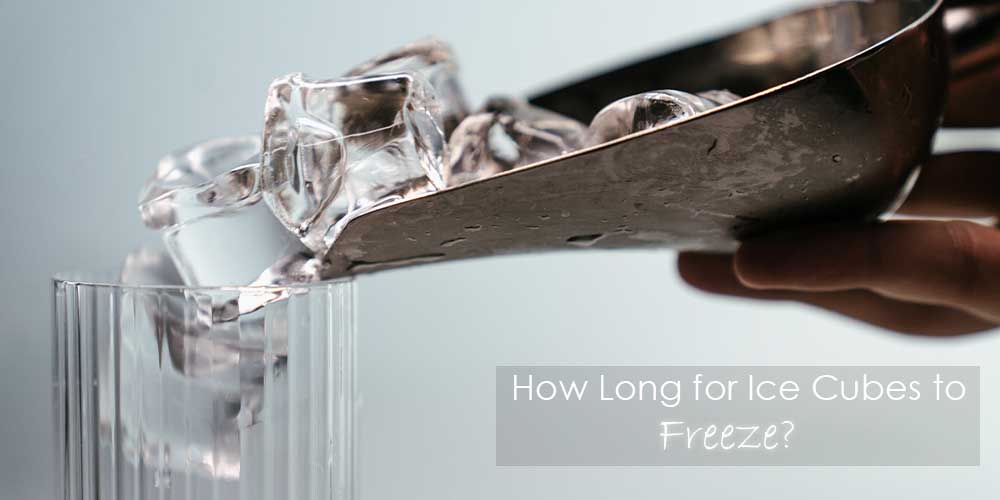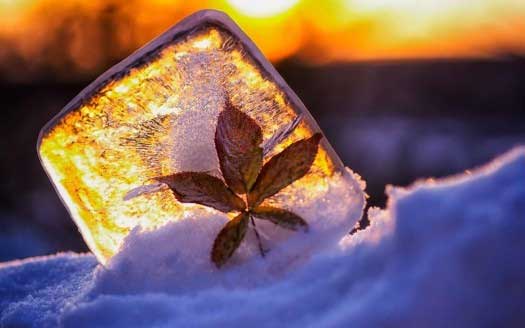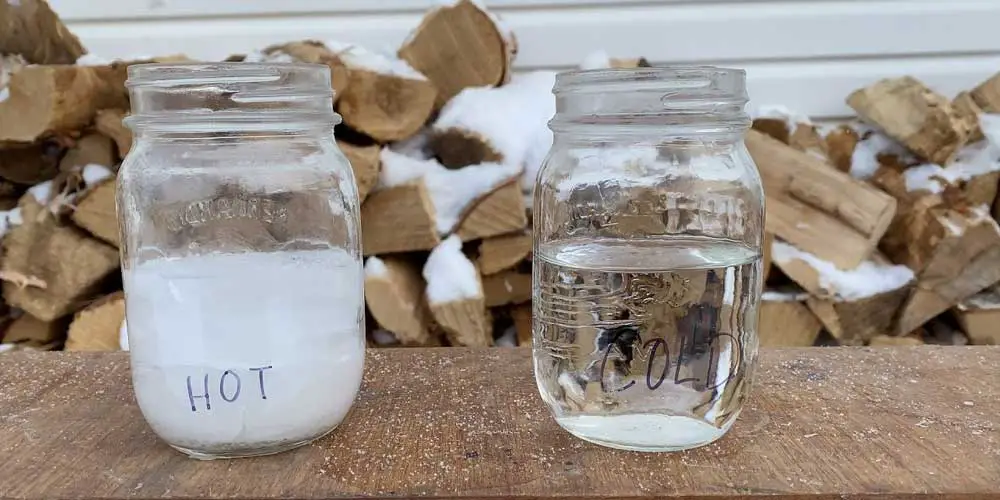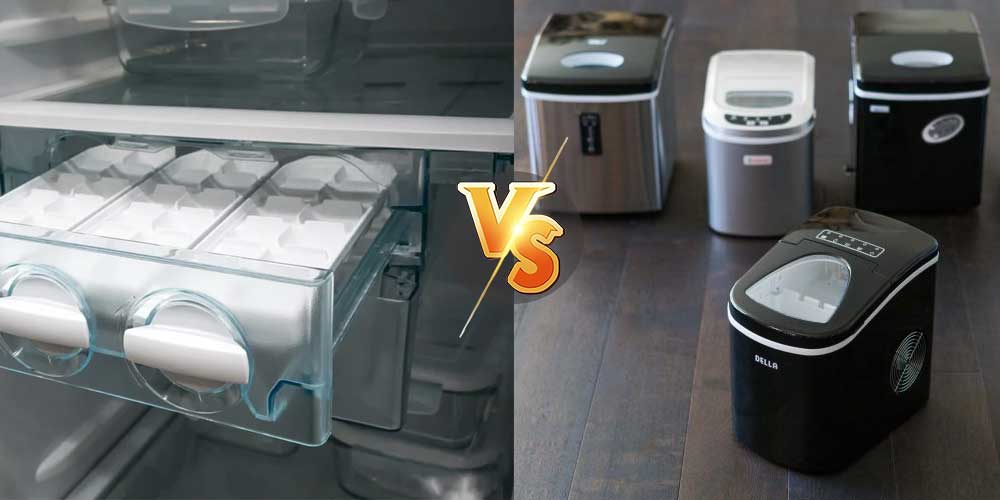
How Long Does it Take for Ice Cubes to Freeze?
After a long and fun Sunday, you finally turn in and go to bed. Your mother as usual fills the ice trays and keeps them in the freezer. Not necessarily ice trays, but you get the idea! The next day at a hot hour, you walk towards the freezer to get some ice for your drink. This is a cycle that goes on and on. But have you ever wondered how long does it take to make ice cubes? Up until now, we are used to filling in the ice trays at night so that we’ll have fresh ice the next morning.
But we have never known how long does it take to make ice cubes. Not just in the freezer, but it is hard to judge how long does it take to freeze ice even at room temperature. This is all but natural since no one probably thinks about how long does it take to freeze ice. However, if you are someone who loves to dig into the details surrounding all this, then this article is for you.
In this article, we will walk you through the exact time taken for ice cubes to freeze.
How Long Does it Take to Freeze Ice Cubes?
On average, it takes roughly 4 hours for ice cubes to freeze in a normal ice tray. If you fill in your ice tray at around 10 PM, you can be dead sure about getting fresh ice by 3 AM. While there is certainty around how long does it take to make ice cubes, the time taken for water to freeze tends to depend on multiple factors. As we all know, water freezes at 0°C or (or 32°F). However, the majority of the freezers are generally set at 0°F which is -18°C.
This is one of the settings that can affect the time ice cubes take to freeze. Another important factor that affects the overall freezing time is the size and the shape and density of the ice cubes you are planning to freeze. Smaller cubes will obviously freeze quicker than block ice. Next is the exposed surface area of the ice which plays a crucial role in how long for ice cubes to freeze. Most importantly, the space between two ice cubes on an ice tray is also a deciding factor in how long does it take to freeze ice.
The Science Behind Freezing of Ice Cubes

While we can all get familiar with the time taken by ice cubes to freeze, the most intriguing part is the science behind the freezing of ice cubes. If you are a science geek, then you are equally interested in the chemical reaction that happens. Ice is nothing but frozen water. When you fill an ice tray with water, the water and the tray undergoes a large chemical process in their quest to become ice.
Given that water always freezes inward, the water at the top of the tray freezes first.
Then the freezing takes place around the edges until just a small hole is remaining in the surface. As the surface moves, more ice starts to form around the cube and eventually fills the hole.
Can You Freeze Ice Cubes Faster?
As we mentioned earlier, it takes around 3-4 hours for the ice to freeze. But what if we told that there are ways using you can freeze ice cubes faster? Yes, there are certain techniques one can implement to freeze ice cubes faster. However, the one thing to remember is that in order to freeze ice cubes, you need to leave it undisturbed. An easier way to freeze ice cubes faster is to simply set your refrigerator temperature colder than the usual setting. This will enhance the condensation process thus freezing the ice at a faster rate.
NOTE: Ensure you turn down the temperature back to normal after you remove the ice from the refrigerator.
Another largely implemented method is by replacing plastic ice trays with stainless steel or metal ice trays. While these trays are a bit expensive, they are an excellent way to freeze ice quickly. This is because stainless steel or metal are poor heat insulators meaning they are excellent at keeping the heat at bay. Lastly, using hot water instead of cold water to fill your ice trays is a proven way of freezing ice cubes faster. Hot water freezes faster than cold water. No, there aren’t any mistakes here. The phenomenon is called the Mpemba effect.
What Is The Mpemba Effect?

The Mpemba Effect is a name that is associated with an observation that states that hot water freezes faster than cold water under similar conditions. While this theory has been under debate significantly, it states that ingredients present within warm water help it release heat more effectively and efficiently. This theory primarily states that the majority of the hot water tends to evaporate which leaves only a small amount of water to be frozen. If you fill an ice tray with hot water, then the cooling of hot water in the tray leads to a temperature difference between the water and the cold surface of the ice tray. This temperature difference is what causes the hot water to freeze faster.
Ice Cube Trays Vs Standalone Ice Makers

Ice makers are largely seen as an alternative ice cube trays since many believe an ice maker takes less time to dispose off ice cubes than an ice tray. This is actually true as an ice maker tends to implement numerous mechanisms within itself that helps it produce ice faster and in large quantity. This happens because ice makers are designed explicitly for the sole purpose of giving out ice cubes. In an ice maker, the metal ice tray is directly exposed to the cold metal coils which helps deliver maximum ice cubes in a shorter time span. This is true for both, harder pellet ice makers and softer sonic ice makers.
On the other hand, traditional ice cube trays will take around 4-5 hours to deliver a meagre quantity of ice. But ice cube trays are a single-purpose kitchen appliance that will deliver a sizeable amount of ice in a suitable time space. Unlike an ice cube tray, an ice maker tends to take up precious tableptop space in your kitchen. Needless to say, ice makers are far more expensive than compared to the ice cube trays.
